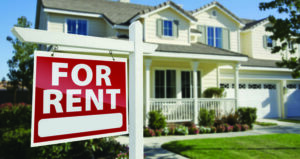Anúncios
Relocating to a new city or state can bring excitement—but also some uncertainty. Whether you’re moving for a new job, education, or lifestyle, it’s essential to understand the rental landscape before choosing a place to live.
Having the right information can help you find a home that suits your finances and preferences, allowing for a smooth and confident transition.

Getting to Know the U.S. Rental Market
Anúncios
Before exploring listings, take some time to learn how rental prices and availability differ from one area to another. Every location has unique factors based on demand, population growth, and housing supply.
Anúncios
Trends Across Regions
Major metropolitan areas such as New York, Los Angeles, and San Francisco usually have steep rental rates and a highly competitive environment. On the other hand, mid-size cities in states like Texas and Florida may provide more budget-friendly choices.
Key Elements That Impact Rent
- Geographic Area: Proximity to downtown, transit options, or schools can drive up rent prices.
- Apartment Features: Renovated spaces and larger floor plans typically command higher prices.
- Time of Year: Rental demand often increases in warmer seasons, affecting availability and cost.
- Local Economy: Cities with job growth often experience rising rental costs.
Why Market Awareness Matters
Keeping an eye on trends and prices gives you a better shot at identifying good deals, especially in areas that are growing or becoming more popular.
Tips for Finding the Right Rental
With a grasp of the market, it’s time to start your search. Use a mix of digital tools and local resources to discover available properties.
Popular Rental Websites
These platforms allow you to sort listings by price range, size, amenities, and neighborhood preferences—making your search more efficient.
Help from Industry Experts
Real estate agents and property managers often have early access to new listings and can assist with paperwork and neighborhood insights.
Leverage Community Resources
Check local Facebook groups, online forums, and bulletin boards for listings that may not appear on mainstream platforms—especially useful in high-demand areas.
Pro Tip: Combine different methods to increase your chances of success.
How to Apply for a Rental Property
Once you find a rental that fits your needs, you’ll need to complete an application and submit the appropriate documents.
Commonly Requested Documents
- Proof of Income: Pay stubs or a letter from your employer.
- Rental History: Previous landlord contact information.
- Credit Report: Often required to evaluate financial reliability.
- Government-Issued ID: Such as a driver’s license or passport.
Tips to Make a Strong Application
Write a short introduction about your background, job, and rental expectations. This adds a personal touch and can make a positive impression.
How to Boost Approval Chances
- Be Transparent: Always provide accurate and honest information.
- Act Quickly: Submit your application and paperwork without delay.
- Explain Credit Issues: Use references to clarify any past credit problems.
- Consider a Co-signer: Especially helpful if you have limited credit history.
Understanding Lease Agreements
Your lease defines both your rights and responsibilities as a tenant. Reading every clause helps prevent issues during your tenancy.
Important Lease Clauses to Review
- Duration: Whether it’s a fixed-term or month-to-month lease.
- Payment Terms: When and how rent is due.
- Deposit Requirements: How much is needed and refund rules.
- Maintenance Duties: Who handles repairs and how requests should be made.
- Pet Regulations: Restrictions and any related fees.
- Guest & Sublet Policies: Rules about visitors and sharing the space.
Never sign a lease without carefully reading and understanding every term.
Your Rights as a Renter
- Equal Housing: You’re protected from discrimination by federal law.
- Right to Privacy: Landlords must give notice before entering.
- Eviction Guidelines: Legal procedures must be followed.
- Security Deposit Laws: Vary by state but must be upheld.
Negotiating Lease Terms
It’s often possible to ask for better terms—such as lower rent, utilities included, or quicker maintenance. Always communicate clearly and respectfully.
Smart Habits for a Positive Rental Experience
Your actions as a tenant greatly influence your living situation. Practicing the following habits can lead to a stress-free experience.
Stay in Touch with Your Landlord
Address concerns early and maintain respectful communication to avoid misunderstandings.
Pay on Time
Timely payments maintain trust and protect your tenant record.
Report Repairs Immediately
Prompt maintenance reports help prevent bigger issues and keep the property in good shape.
Follow the Property Rules
Abide by property regulations to ensure a respectful and enjoyable community.
Keep Records
Save leases, receipts, and communications in case you need to reference them later.
Be a Good Neighbor
Positive relationships with landlords and neighbors make for a more pleasant rental life.
Wrapping Up
Renting a home in the U.S. can be straightforward with the right preparation. Being informed increases your chances of securing the perfect place for your lifestyle and budget.
Take it step by step, stay organized, and let this guide support you on the way to finding a place to call home.
Frequently Asked Questions About Renting
- What documents do I need to apply? Generally, income proof, references, credit report, and a valid ID.
- How can I improve my chances of approval? Submit a complete application, provide solid references, and consider a co-signer if needed.
- Are short-term rentals an option? Yes, look for flexible leases or furnished units.
- What if I can’t pay rent one month? Contact your landlord early to discuss alternative payment arrangements.
- Is it possible to negotiate rental terms? Yes—try negotiating things like rent amount, deposits, or move-in dates.
